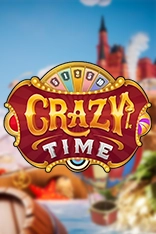
Perception of Gambling in the UK Improved for First Time Since 2016
User Review
( votes)The latest survey conducted by the British Gambling Commission concludes that attitudes towards gambling have improved for the first time since the survey started five years ago.
This conclusion is based on results from the Gambling Commission’s quarterly telephone survey, which monitors gambling prevalence, attitudes, and rates of harm. The latest survey, that of December 2021, polled 4,021 people and suggested a statistically significant improvement since 2016.
This however does not mean that gambling is seen as a positive activity, it simply suggests that people’s attitudes are becoming less negative.
For example, the portion of the population who agreed that gambling was “dangerous for family life” dropped from 74.5% to 69.9%, which was the lowest total over the five surveys carried out by the regulator but still represents well over half of those surveyed.
In response to agreeing or disagreeing with the phrase “gambling is fair and can be trusted” the proportion of those surveyed that agreed with the statement in the latest survey rose to 36.2% – a survey record.
Although attitudes to gambling this survey suggests may have changed, gambling rates in the country (including national lottery) have remained roughly the same compared to 2020.
In terms of types of gambling, there was a significant increase in land-based fruit or slot machine play, from 1.3% of the population to 2.0%. However, this could be due to the slackening of coronavirus restrictions rather than a change in attitude.
In contrast, there was a sharp decline in use of virtual gaming machines in bookmakers, such as fixed-odds betting terminals (FOBTs), with only 0.2% of people saying they had used these machines. This may have something to do with the UK government bringing in maximum stakes change on these machines, although this isn’t known for sure.
Online slots also saw a decline, with 3.2% of those polled saying they play the games.
The portion of people assigned as “problem gamblers” – based on individuals’ Problem Gambling Severity Index scores – remained at 0.3%. The percentage of players at moderate risk, with a score of two or three, was 0.8% and those classed as low-risk – with a score of one – was 1.9%.
The British Gambling Commission’s Chief Executive Michael Dugher said initiatives from the industry had helped keep this rate low.
“Our initiatives have included using advertising to promote safer gambling messages and tools like deposit limits and time-outs, investing more in research and treatment, and introducing tough new rules on VIP schemes,” he said.
“One problem gambler is one too many, however, and we are determined to keep up the momentum in the months and years ahead.
“As we continue to make progress on problem gambling and drive ever higher standards on safer gaming in the regulated sector, it’s vital ministers don’t do anything that drives people to the unsafe, unregulated black market online, which has none of the protections or safer gambling interventions that we see with licensed operators. There is no enforcement solution to tackling the black market. You need to stop customers being driven there with further restrictions that are cumbersome, intrusive and ill-thought-through.
“Ministers need to listen to the 119,000 people whose jobs depend on the regulated betting industry and the millions of punters who overwhelmingly bet safely and responsibly – not the usual suspects from the anti-gambling lobby who just want to ban stuff because they don’t approve of how millions of people choose to spend their own money”.























